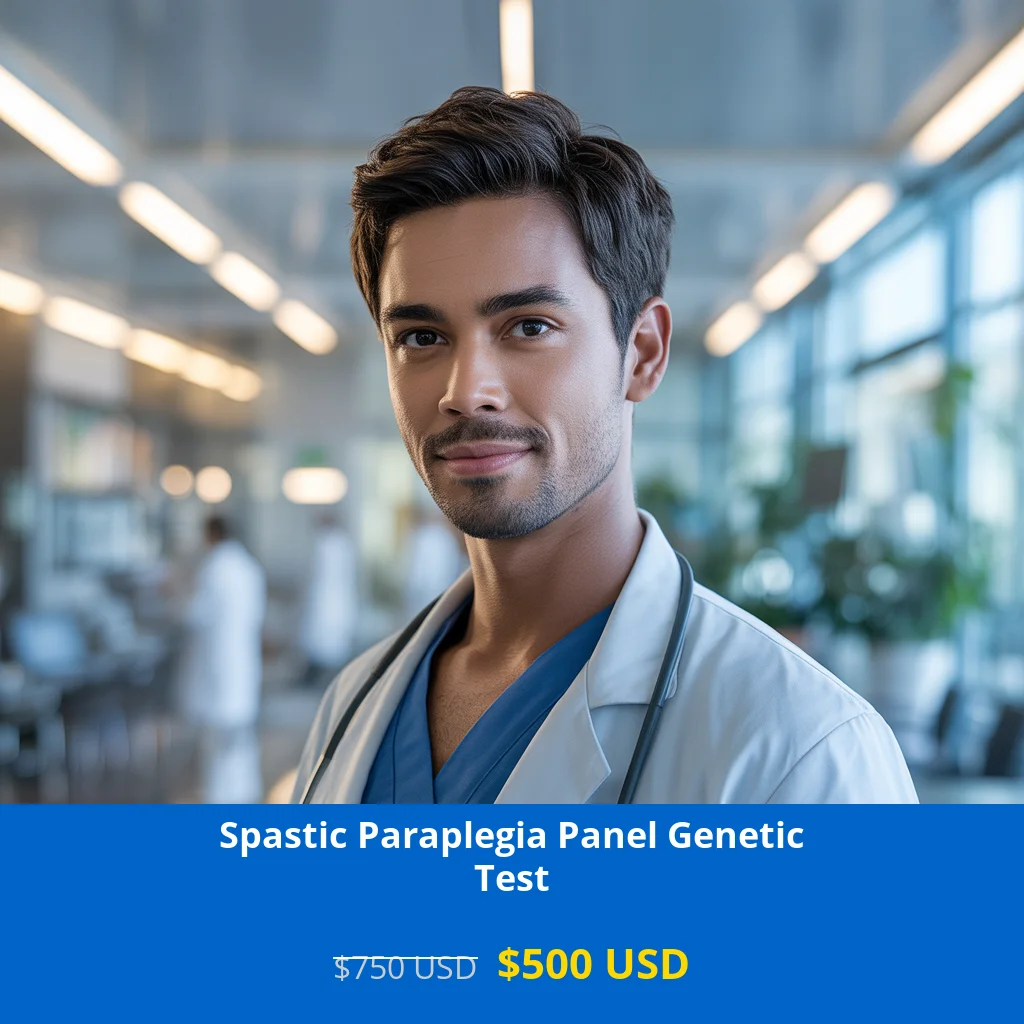Spastic Paraplegia Panel NGS Genetic DNA Test
Comprehensive Genetic Testing for Hereditary Spastic Paraplegia
The Spastic Paraplegia Panel NGS Genetic DNA Test represents a breakthrough in neurological genetic diagnostics, offering comprehensive analysis of genes associated with hereditary spastic paraplegia (HSP). This progressive neurological disorder affects the upper motor neurons, leading to progressive weakness and spasticity in the lower limbs. Our advanced next-generation sequencing technology provides unparalleled accuracy in detecting genetic mutations that contribute to this complex condition.
What Does This Test Measure and Detect?
This comprehensive genetic panel utilizes cutting-edge NGS technology to analyze multiple genes simultaneously, including:
- SPG4 (Spastin) gene mutations – the most common cause of autosomal dominant HSP
- SPG3A (Atlastin) gene variations
- SPG11 (Spatacsin) gene abnormalities
- Multiple other HSP-associated genes
- Complex and pure forms of hereditary spastic paraplegia
- Both autosomal dominant and recessive inheritance patterns
The test identifies point mutations, small insertions/deletions, and copy number variations across the entire genetic spectrum of HSP, providing a comprehensive diagnostic assessment.
Who Should Consider This Genetic Test?
This test is recommended for individuals experiencing:
- Progressive leg stiffness and weakness starting in childhood or adulthood
- Difficulty walking with increased muscle tone in lower limbs
- Family history of similar neurological symptoms
- Unexplained balance problems and frequent falls
- Urinary urgency or other bladder symptoms accompanying leg stiffness
- Children with delayed motor milestones and progressive gait difficulties
- Individuals with suspected hereditary neurological disorders
Significant Benefits of Spastic Paraplegia Genetic Testing
Undergoing this comprehensive genetic panel offers numerous advantages:
- Accurate Diagnosis: Provides definitive genetic confirmation of hereditary spastic paraplegia
- Early Intervention: Enables timely management strategies and treatment planning
- Family Planning: Offers crucial information for reproductive decisions and genetic counseling
- Personalized Care: Guides targeted therapeutic approaches and rehabilitation programs
- Prognostic Information: Helps predict disease progression and potential complications
- Research Contribution: Advances understanding of HSP and supports ongoing neurological research
Understanding Your Test Results
Our comprehensive genetic counseling ensures you fully understand your test results:
- Positive Result: Indicates the presence of a known pathogenic mutation associated with HSP. Our genetic counselors will explain the specific gene affected, inheritance pattern, and implications for family members.
- Negative Result: No known HSP-causing mutations were detected in the genes analyzed. This significantly reduces but doesn’t completely eliminate the possibility of hereditary spastic paraplegia.
- Variant of Uncertain Significance (VUS): A genetic change was found whose clinical significance is currently unknown. Regular follow-up is recommended as research evolves.
All results are accompanied by detailed explanations and recommendations from our board-certified genetic counselors and neurologists.
Test Pricing and Details
| Test Feature | Details |
|---|---|
| Test Name | Spastic Paraplegia Panel NGS Genetic DNA Test |
| Discount Price | $500 USD |
| Regular Price | $750 USD |
| Turnaround Time | 3 to 4 Weeks |
| Sample Type | Blood, Extracted DNA, or One Drop Blood on FTA Card |
| Testing Method | Next-Generation Sequencing (NGS) Technology |
Pre-Test Requirements and Preparation
Before undergoing testing, we require:
- Complete clinical history of the patient
- Genetic counseling session to create a detailed pedigree chart of affected family members
- Informed consent understanding the implications of genetic testing
- Discussion of potential psychological impact and support resources
Nationwide Testing Availability
We have convenient testing locations across the United States, including major metropolitan areas such as New York, Los Angeles, Chicago, Houston, Phoenix, Philadelphia, San Antonio, San Diego, Dallas, and San Jose. Our state-of-the-art facilities ensure consistent, high-quality testing standards nationwide.
Take Control of Your Neurological Health Today
Don’t let uncertainty about hereditary spastic paraplegia affect your quality of life. Our comprehensive genetic testing provides the answers you need for informed healthcare decisions. With advanced NGS technology and expert genetic counseling, you’ll receive the most accurate diagnostic information available.
Book your Spastic Paraplegia Panel NGS Genetic DNA Test today by calling our dedicated genetic testing specialists at +1(267) 388-9828 or schedule your appointment online. Take the first step toward understanding your genetic health and securing your neurological future.







